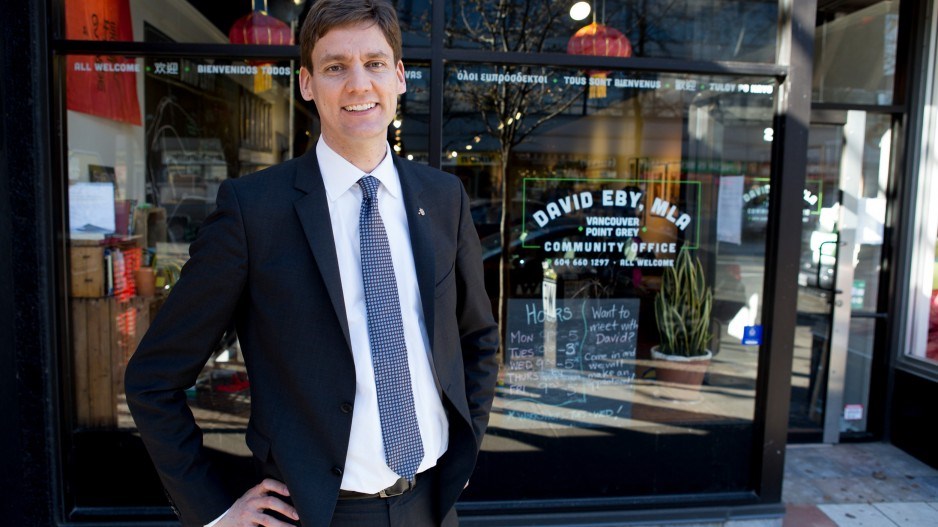Members of B.C.’s legal community are questioning why the NDP government is doing a review of the legal aid system when extensive commission work did the same thing in 2011.
“This has been studied to death,” said Richard Fowler of the Association of Legal Aid Lawyers.
Attorney General David Eby announced the review Oct. 4.
The scope of the work, to be done by lawyer Jamie Maclaren, includes examining caseload demand, differing legal aid models, duty counsel, legal clinics, major case coverage, paralegals, trends in legal aid needs and models used in other areas.
However, Maclaren’s work is restricted, omitting what some believe the most important aspects of the legal aid system.
Left out of the terms of reference but mentioned on the government website are the limitations.
“The scope of this engagement process is limited to legal aid service delivery models,” the website said. “Mr. Maclaren’s report will not include recommendations on other aspects of British Columbia’s legal aid system, such as client eligibility criteria, area scope of coverage, and rates of pay for legal aid lawyers.”
The website said Maclaren’s recommendations “may inform future system changes to enhance both the user and public interest in more effective, efficient and accessible legal aid services.”
Veteran lawyer Len Doust covered most of those areas in his report on the province’s legal assistance system, delivered to the BC Liberal government in 2011 after 10 months’ work, Fowler said.
Doust made nine recommendations.
Included were suggestions legal aid be recognized as an essential public service; that core services and priorities be defined; that financial eligibility be modernized and expanded; that regional legal aid centres and innovative service delivery be established; and that public engagement and political dialogue be expanded.
He further advocated an increase in long-term, stable funding; that the system be proactive, dynamic, and strategic; that there be greater collaboration between public and private legal aid service providers; and that legal aid providers receive more support.
Fowler said Doust’s review was comprehensive.
“For the life of me, I can’t understand what the terms of reference for this new external review would add to what Doust came up with,” Fowler said.
Doust’s recommendation for stable system funding “is what Eby does not mention at all,” Fowler said.
He said lawyers are leaving legal aid work because they cannot support the costs associated with running such a practice.
“You simply cannot do this work at the rates you are paid,” he said. It’s unsustainable.”
Fowler said the provincial tax on legal services could more than adequately pay for the legal aid system, but that’s not happening.
Rather, he said, half is diverted to general government revenues and is not used to fund legal aid.
He also questioned why legal aid lawyers are not valued the same way the government’s own lawyers are and paid accordingly.
Trial Lawyers Association of B.C. (TLABC) CEO Shawn Mitchell said in a statement the TLBAC was surprised to hear of the new review as the work had been done in 2011.
Mitchell said the TLABC is pleased Eby is spending time on legal aid, there are improvements that could be implemented immediately including up to $9 million in annual funding increases.
He said Ontario and Newfoundland and Labrador lawyers receive $109-$150 per hour while B.C. counterparts receive $84-$92 since 2006.
He said government lawyers assigned to the same cases have received an average of $135 per hour.
The Legal Services Society (LSS) administers legal aid in B.C.
In an Oct. 4 statement, the LSS said it welcomes any public discussion about legal aid.
“The Maclaren review provides an opportunity for justice system stakeholders to identify gaps in legal aid services and better ways to deliver those services to clients,” the statement said.
“LSS has struggled for many years with a lack of funding, which has challenged the society's ability to offer the services low-income people in BC need to resolve their legal problems,” the statement said.
In its Agenda for Justice report released Oct. 2, the B.C. branch of the Canadian Bar Association said Eby has acknowledged legal aid lawyers’ pay is a concern but the government added no new funding in the 2018 budget.
“We call upon government to increase the tariff,” the report said.
The association also called for the tax to be either eliminated or the proceeds used fully for legal aid.
The association noted, however, that the NDP government added nearly $4.8 million in additional annual funding to the Legal Services Society that operates legal aid.
Lawyer and former BC Liberal attorney general Suzanne Anton said Oct. 4 that the review is an example of the NDP studying things not needing further study.
“There no question legal aid needs more support,” Anton said. “We increased their support over the years.
“You do need to be innovative, whether you need to do a whole review, I leave that to the current attorney general.”
Maclaren is accepting submissions until Nov. 23. His report, with recommendations, is due Dec. 31.




